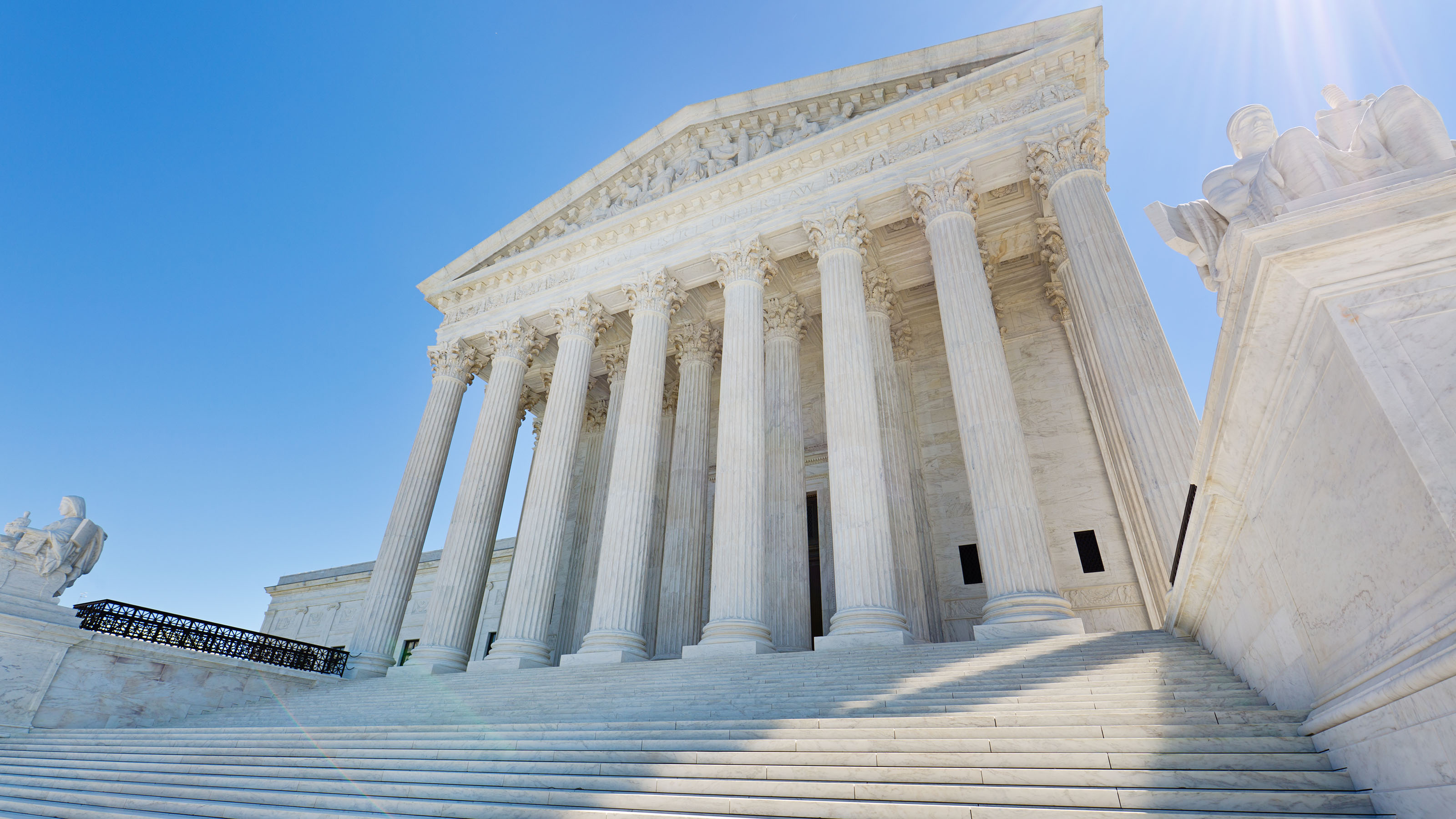Why the Map Matters in Determining Obamacare Costs
Employers in some states will see more choices and lower bills when mandated medical coverage begins.

Profit and prosper with the best of Kiplinger's advice on investing, taxes, retirement, personal finance and much more. Delivered daily. Enter your email in the box and click Sign Me Up.
You are now subscribed
Your newsletter sign-up was successful
Want to add more newsletters?

Delivered daily
Kiplinger Today
Profit and prosper with the best of Kiplinger's advice on investing, taxes, retirement, personal finance and much more delivered daily. Smart money moves start here.

Sent five days a week
Kiplinger A Step Ahead
Get practical help to make better financial decisions in your everyday life, from spending to savings on top deals.

Delivered daily
Kiplinger Closing Bell
Get today's biggest financial and investing headlines delivered to your inbox every day the U.S. stock market is open.

Sent twice a week
Kiplinger Adviser Intel
Financial pros across the country share best practices and fresh tactics to preserve and grow your wealth.

Delivered weekly
Kiplinger Tax Tips
Trim your federal and state tax bills with practical tax-planning and tax-cutting strategies.

Sent twice a week
Kiplinger Retirement Tips
Your twice-a-week guide to planning and enjoying a financially secure and richly rewarding retirement

Sent bimonthly.
Kiplinger Adviser Angle
Insights for advisers, wealth managers and other financial professionals.

Sent twice a week
Kiplinger Investing Weekly
Your twice-a-week roundup of promising stocks, funds, companies and industries you should consider, ones you should avoid, and why.

Sent weekly for six weeks
Kiplinger Invest for Retirement
Your step-by-step six-part series on how to invest for retirement, from devising a successful strategy to exactly which investments to choose.
How will employers fare when the main provisions of President Obama’s sweeping health insurance law kick in on Jan. 1, 2014? The answer depends largely on where they’re located.
One big factor: Medicaid availability. The District of Columbia and 23 states will expand eligibility for the program to include people with annual incomes of $32,500 for a family of four ($15,860 for singles).
The states: Arizona, Arkansas, California, Colorado, Connecticut, Delaware, Hawaii, Illinois, Iowa, Kentucky, Maryland, Massachusetts, Minnesota, Nevada, New Jersey, New Mexico, New York, North Dakota, Oregon, Rhode Island, Vermont, Washington and West Virginia. Michigan will probably expand eligibility as well, while Indiana, Maine, New Hampshire, Ohio, Pennsylvania and Tennessee are on the fence.
From just $107.88 $24.99 for Kiplinger Personal Finance
Become a smarter, better informed investor. Subscribe from just $107.88 $24.99, plus get up to 4 Special Issues

Sign up for Kiplinger’s Free Newsletters
Profit and prosper with the best of expert advice on investing, taxes, retirement, personal finance and more - straight to your e-mail.
Profit and prosper with the best of expert advice - straight to your e-mail.
The 20 remaining states won’t budge for now but are likely to follow suit in a few years.
The expanded Medicaid rolls can make a difference for some employers.
For starters, it’s a possible premium-saver for those with low-paid workers who will be eligible for the government program under the new guidelines. Because Medicaid has no premiums, no deductibles and few or no copayments, some workers may choose to enroll in it rather that participate in the employer-sponsored plan at work.
Plus, health care costs may actually rise more slowly in states with expanded enrollment because there will be fewer individuals without medical insurance. Hospitals and other providers now jack up charges for those with insurance to offset the losses they incur for treating and caring for those without coverage.
A second difference that will matter to employers: whether states have their own exchanges to sell insurance or rely on the federal government to operate the exchanges.
In the 16 states with their own exchanges, workers for small firms that offer coverage even though they’re not covered by the mandate will be able to choose from multiple options. There’s an advantage to employers, too: They’ll be able to write a single check and deal with a single administrator.
That won’t be the case for states that start out allowing Uncle Sam to run their exchanges. The federal system just isn’t set up yet for that level of complexity. In those 34 states, small employers that opt to provide insurance bought through the exchanges will have to pick a single plan for 2014. More choices likely will be available from the federally run programs in 2015.
Other questions that will help shape employers’ experiences, especially early on:
How aggressive will states be in negotiating with insurers in their exchanges? Many are approving all carriers that meet basic criteria. But California, Massachusetts and others are making participating insurers meet higher standards to help hold down costs.
How many insurers have served the state in the past? Competition may lag in Alaska and Louisiana, for example, where single carriers dominate the market.
And have states already prevented insurance underwriters from basing premiums on overall health, preexisting conditions and other factors? Maryland, Michigan, New Jersey and New York are among states where such regulations have been toughest. Employers there may see premium costs come down.
Profit and prosper with the best of Kiplinger's advice on investing, taxes, retirement, personal finance and much more. Delivered daily. Enter your email in the box and click Sign Me Up.

-
 Over 65? Here's What the New $6K 'Senior Deduction' Means for Medicare IRMAA Costs
Over 65? Here's What the New $6K 'Senior Deduction' Means for Medicare IRMAA CostsTax Breaks A new deduction for people over age 65 has some thinking about Medicare premiums and MAGI strategy.
-
 U.S. Congress to End Emergency Tax Bill Over $6,000 Senior Deduction and Tip, Overtime Tax Breaks in D.C.
U.S. Congress to End Emergency Tax Bill Over $6,000 Senior Deduction and Tip, Overtime Tax Breaks in D.C.Tax Law Here's how taxpayers can amend their already-filed income tax returns amid a potentially looming legal battle on Capitol Hill.
-
 5 Investing Rules You Can Steal From Millennials
5 Investing Rules You Can Steal From MillennialsMillennials are reshaping the investing landscape. See how the tech-savvy generation is approaching capital markets – and the strategies you can take from them.
-
 Is a New $25,000 Health Care Tax Deduction Coming in 2026?
Is a New $25,000 Health Care Tax Deduction Coming in 2026?Tax Policy A proposal from GOP Sen. Josh Hawley adds to the chatter about health care affordability.
-
 Money for Your Kids? Three Ways Trump's ‘Big Beautiful Bill’ Impacts Your Child's Finances
Money for Your Kids? Three Ways Trump's ‘Big Beautiful Bill’ Impacts Your Child's FinancesTax Tips The Trump tax bill could help your child with future education and homebuying costs. Here’s how.
-
 Key 2025 Tax Changes for Parents in Trump's Megabill
Key 2025 Tax Changes for Parents in Trump's MegabillTax Changes Are you a parent? The so-called ‘One Big Beautiful Bill’ (OBBB) impacts several key tax incentives that can affect your family this year and beyond.
-
 Will EVs Drive the Vote in Election 2024 Swing States?
Will EVs Drive the Vote in Election 2024 Swing States?Tax Credits Electric vehicle tax credits have somehow become controversial. So car buyer attitudes in swing states might make a difference.
-
 How Four Recent Supreme Court Rulings Impact Your Money
How Four Recent Supreme Court Rulings Impact Your MoneySupreme Court Some U.S. Supreme Court decisions could affect your finances. Here’s what you need to know.
-
 Are Student Loans Being Forgiven or Not?
Are Student Loans Being Forgiven or Not?Student Loans The House and Senate voted to repeal President Biden’s student loan forgiveness plan, but does it even matter?
-
 Etsy, eBay, PayPal Want IRS 1099-K Relief for Online Sellers
Etsy, eBay, PayPal Want IRS 1099-K Relief for Online SellersIncome Tax Companies like eBay, Etsy, and PayPal want Congress to raise the $600 reporting threshold for IRS Form 1099-K to give relief to millions of sellers who use their sites.
-
 Student Loan Forgiveness Blocked For Now Due to Court Rulings
Student Loan Forgiveness Blocked For Now Due to Court RulingsBiden's student loan debt forgiveness program is on hold until the U.S. Supreme Court weighs in.